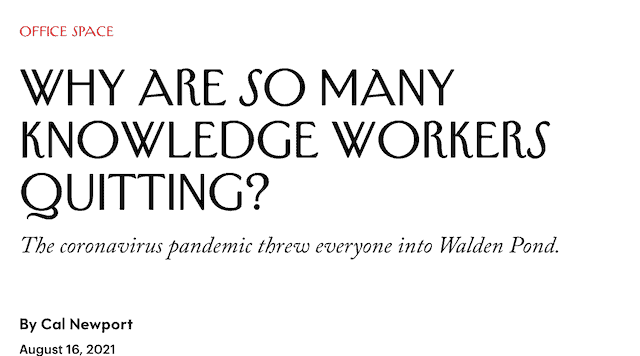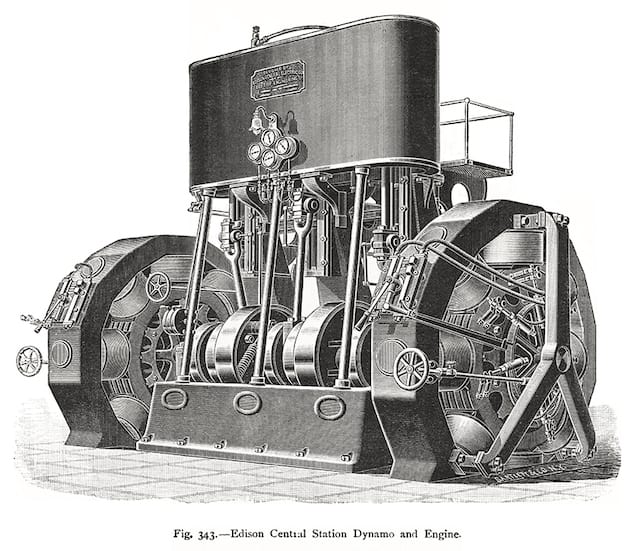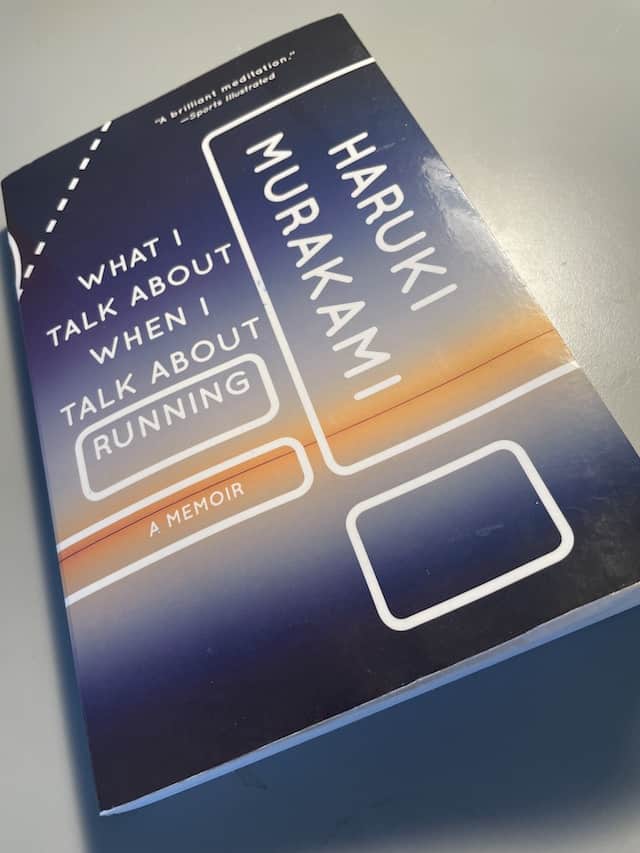
Earlier this summer, the Labor Department released a report that included a shocking statistic: close to 4 million people had quit or resigned in April. These numbers remained high in the spring months that followed. The business press began calling this workplace exodus the “Great Resignation.”
In my latest essay for the New Yorker, published earlier this week, I took a closer look at this trend. There are many different factors powering the Great Resignation, and it impacts many different demographics. Amidst this complexity there was one thread in particular that I pulled: highly-educated knowledge workers leaving their jobs not because the pandemic presented obstacles, but because it instead nudged them to rethink the role of work in their lives.






